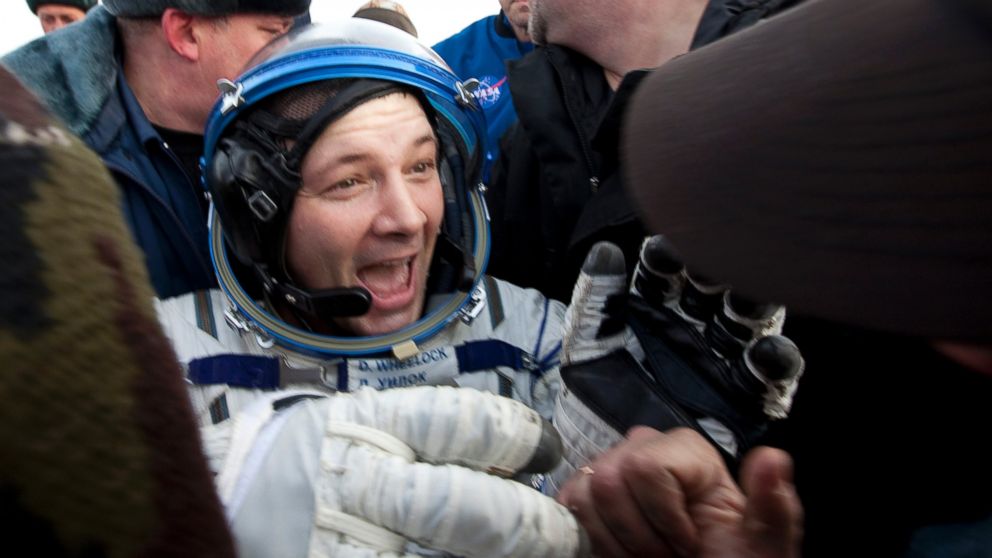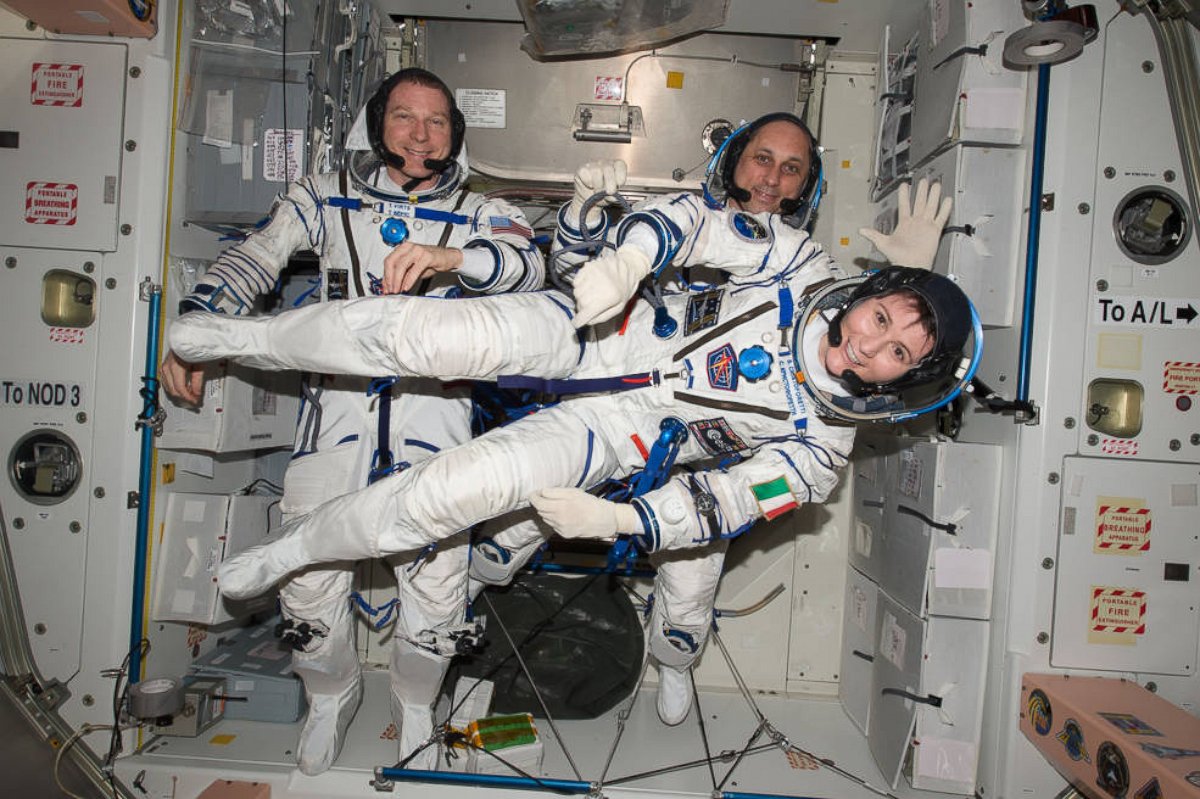Three Long-Haul Astronauts About to Experience the Dizzying, 'Intoxicating' Return to Earth
After months in space, gravity will be a shock to the system.

— -- The homecoming for three astronauts set to return to Earth on Thursday will include one rude awakening: gravity.
American Terry Virts, Italian Samantha Cristoforetti and Russian Anton Shkaplerov are set to land in Kazakhstan on Thursday at 9:43 a.m. ET after spending more than six months living and working at the International Space Station.
After months in space, it's not always easy to arrive home with two feet firmly on the ground.
"You've got this little bit of paranoia that you won't to be able to stand up when you walk home," Doug Wheelock, a NASA astronaut who has spent 178 days in space over the course of two missions, told ABC News earlier this year.
"You feel the physiological changes when you get to space and you are beginning to feel that your body and brain think you don't need your legs anymore," he said.
Health Issues
In a study published last November in Journal of Women's Health, researchers from NASA and National Space Biomedical Research Institute analyzed decades of data to glean a better understanding of how space travel affects the bodies of men and women.
The team reviewed data on the 534 people to have flown in space at the time of the study, including 57 women, and studied cardiovascular, reproductive, musculoskeletal, immunological and behavioral health.
Changes in zero gravity included worse vision problems among some men and for some female astronauts, the inability to stand for long periods without fainting after landing back on earth, according to the study. Calcium loss was reported in both men and women.
When long-duration astronauts return home, they're also often kept from doing everyday things such as taking a normal shower standing up or driving a car until their bodies readjust to life on Earth.
Astronaut Chris Hadfield said after his 2013 landing back on Earth he realized he had learned to talk with a weightless tongue, according to Space.com.
Meals
Clay Anderson, who has spent 167 days in space over the course of two missions, said aside from seeing family, the next thing most astronauts want most is to take care of the cravings they weren't able to indulge in space.
"One of the things I was looking forward to was a really good meal. Being a husker from Nebraska I wanted a steak, a stuffed baked potato and a Cabernet," he told ABC News.
That is -- when the astronauts can stomach a full feast. The Soyuz capsule they'll be returning home in is known for being hot, cramped and a wild ride.
Wheelock, who traveled on the Discovery space shuttle during his first mission and the Soyuz during his second, likened the experience of traveling in the Russian capsule to "going over Niagara falls in a barrel, but the barrel is on fire."
"It is a feast for the senses," he said. "It's incredibly bumpy and hot and cramped. You have a lot of G-forces pushing you down."

Sights, Sounds and Smells
Anderson, who released a memoir, "The Ordinary Spaceman," earlier this month, said after being in the sterile environment of space, everything has a sharper smell when returning to Earth.
"I craved smelling fresh cut grass and the sounds of birds chirping in the trees and animals barking," he said. "It was amazing to me the things I missed and how acute those senses are when you first come home."
After his dizzying return home, Wheelock said a big meal wasn't the first item he enjoyed. Instead, it was the simple smell of "Earthiness."
"Your sense of smell and taste are dulled in space. I craved the aroma of leaves and grass and flowers and trees," he said. "These things are not present on the space station. When you get back to Earth they are literally intoxicating."
ABC News' Gillian Mohney contributed to this report.




